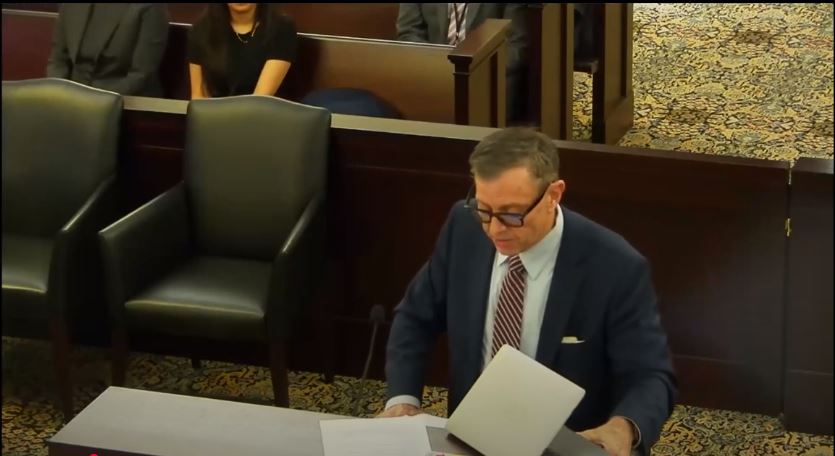Defense against false accusations of Criminal Sexual Conduct (CSC) in MichiganDefending against a false accusation of Criminal Sexual Conduct (CSC) in Michigan is a serious matter and requires a well-prepared legal strategy. Here are several steps you should take to...

Carrying a Firearm Under the Influence of Cannabis
Laws and Penalties in Michigan of Carrying a Concealed Firearm or EMD Under the Influence of a Controlled Substance.
Michigan controlled substance info at end of article and yes cannabis is still a controlled substance 1 at the time of this article… but it is an election year.
Under the influence of alcohol or a controlled substance while driving, walking, anything, etc…
An individual shall not
- An individual shall not carry a concealed pistol or portable device that uses electro-muscular disruption (EMD) technology while under the influence a controlled substance.
Implied Consent
- Acceptance of a Michigan Concealed Pistol License (CPL) constitutes implied consent to submit to a chemical test to detect use of alcoholic liquor or a controlled substance.
Probable Cause
- A police officer who has probable cause to believe an individual is carrying a concealed pistol or EMD device while under the influence a controlled substance may require the individual to submit to a chemical analysis of his or her breath, blood, or urine.
Penalties
- An individual carrying a concealed pistol or EMD device with a prohibited BAC or determined through a drug recognition expert and blood test is subject to immediate seizure of his or her pistol and the following penalties:
-
- BAC of .02 – .07 = State civil infraction, $100 fine, and 1-year CPL suspension.
- BAC of .08 – .09 = 93-day misdemeanor, $100 fine, and 3-year CPL suspension.
- BAC of .10 or more, or under the influence of alcoholic liquor or a controlled substance = 93-day misdemeanor, $100 fine, and CPL revocation.
What you can do when you’re under the influence.
An individual who has an unlawful bodily alcohol content may do the following:
- Transport a pistol in the locked trunk of a motor vehicle or, if the vehicle does not have a trunk, transport the pistol unloaded in a locked compartment or container that is separated from the ammunition for that pistol.
- Transport a pistol on a vessel if the pistol is transported unloaded in a locked compartment or container that is separated from the ammunition for that pistol.
- Transport an EMD device in the locked trunk of a motor vehicle or, if the vehicle does not have a trunk, transport the EMD device in a locked compartment or container.
- Transport an EMD device on a vessel if the EMD device is transported in a locked compartment or container.
And… Then when you get pulled over for DUI they will take it anyway. That’s when you need more than just average legal help you need Komorn Law.
See CPL stats report below
Michigan CPL Report Stats
More detailed Reasons for Approvals/Denials/Charges
Michigan’s Definition of a Controlled Substance
Under Michigan law, a controlled substance is any substance that is classified in Schedule 1 through 5 of the Controlled Substances Act. This classification system is based on the potential for abuse, dependence, and medical use of the substance.
Key Points about Controlled Substances in Michigan:
Classification: Substances are categorized into five schedules based on their potential for abuse and medical utility.
Schedule 1: These substances have a high potential for abuse and no currently accepted medical use in treatment. Examples include heroin, LSD, and marijuana.
Schedule 2: These substances have a high potential for abuse and a currently accepted medical use in treatment. Examples include cocaine, morphine, and methamphetamine.
Schedule 3: These substances have a moderate potential for abuse and a currently accepted medical use in treatment. Examples include codeine, anabolic steroids, and ketamine.
Schedule 4: These substances have a low potential for abuse and a currently accepted medical use in treatment. Examples include Valium, Xanax, and Darvon.
Schedule 5: These substances have a low potential for abuse and a currently accepted medical use in treatment. Examples include cough syrups containing codeine.
For more detailed information, you can refer to the Michigan Legislature’s website:
Act 368 of 1978
CONTROLLED SUBSTANCES
Oh yeah – You probably should not be driving while consuming cannabis and posessing a gun as pictured. Triple play for law enforcement.
Recent
Defending Against Criminal Sex Charges

Forfeiture without Criminal Charges
Can the police seize your belongings and hold it without charging you with a crime?Read the summary below and watch Attorney Michael Komorn in the Court of Appeals.Summary of "Ruben Delgado v. Michigan State Police": This case was filed in the Jackson County Circuit...










